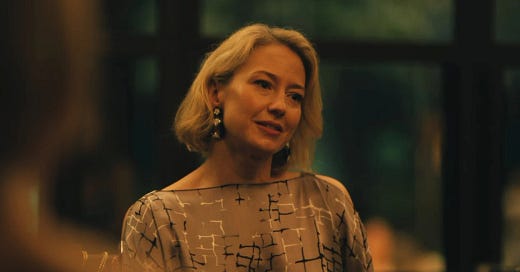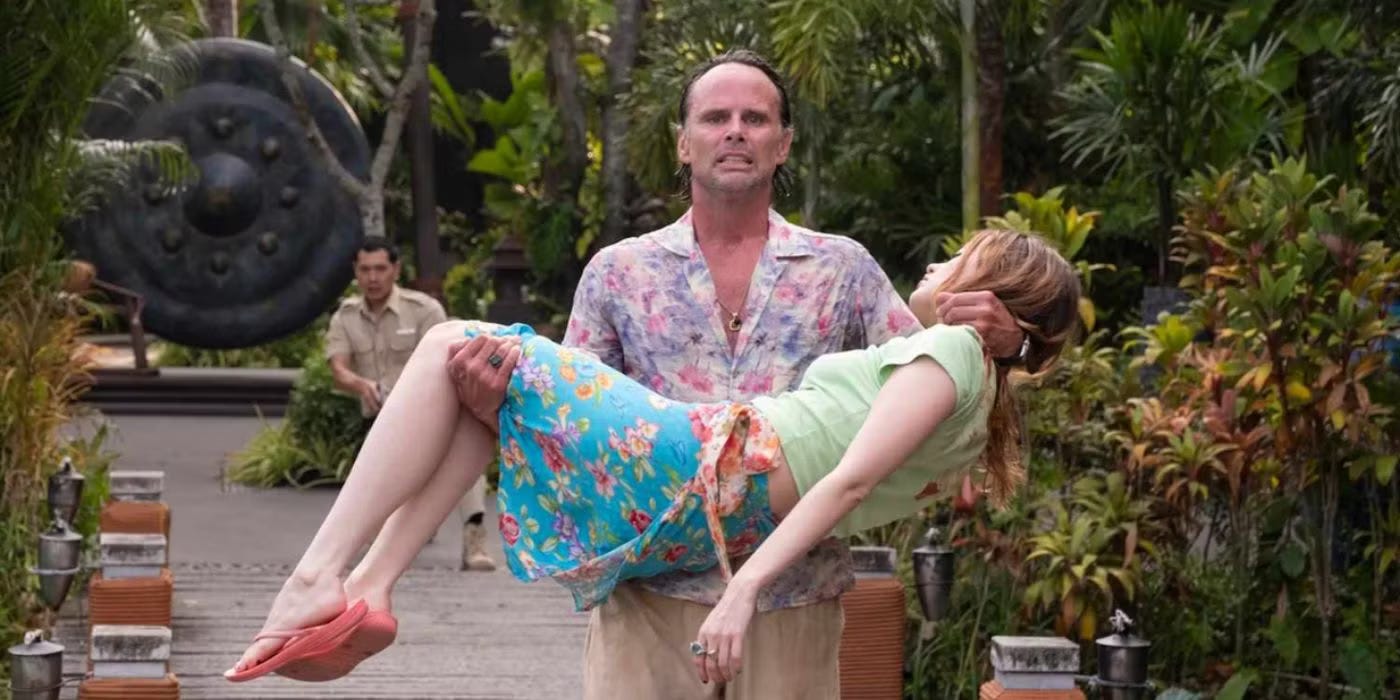What We're Missing About the White Lotus Season 3 Finale
The Dangerous Romanticization of Toxic Relationships
Spoiler Alert: If you haven't watched the season 3 finale of White Lotus, you might not want to read this. I watched it last night, and I have thoughts—lots of thoughts. But here, I'm going to focus on two areas where my views clash with what I’m seeing and reading on the internet.
Before diving into my main points, I want to say I think Mike White is a genius, and I genuinely believe this is the best show on television right now. The writing often captures real life accurately and highlights many aspects of humanity. However, I think Mike is more cynical than I am—he seems to believe most people prioritize power, self-interest, and abandonment of the soul to fit in above all else. I don't see the world this way, and if he is correct, it's deeply depressing for humanity. People often reference Darwinism and survival of the fittest as a gold standard, but when I studied psychology, I learned from attachment theory and social neuroscience that humans are naturally wired for empathy and community, though societal conditioning often suppresses this. If trees communicate with beetles and moss to protect each other, I'm pretty sure we're naturally inclined toward cooperation and community too—we're just negatively impacted by the systems we've created. Mike is excellent at highlighting these problematic systems, but that doesn't mean they're acceptable. We need to work together to change them. Anyway...
Let's start with Laurie's monologue—it made me cry, but my tears came for reasons different from what other women online seem to be expressing. Women are saying things like, “Oh, Mike really understands female friendships. This is exactly how we are. We don't hate each other; our relationships are just complex.” Sure, many friendships are indeed like this trio’s—but those aren't the healthiest ones.
Laurie’s monologue was brave yet self-defeating. She accepted her friends' harsh judgment that her life is messed up because of her choices. Laurie owned the flaws her friends insisted she had, yet her friends never acknowledged their own issues. Jacqueline never admitted that cheating on her husband was problematic, nor did she acknowledge how selfish and immature it was to push Valentin onto Laurie simply because she wanted him herself. Similarly, Kate never revealed her genuine struggles, maintaining instead a superficial veneer of perfection to keep the peace.
Consequently, Laurie, the most enlightened and honest among them, ends up unfairly absorbing blame and excessive responsibility—even for things clearly beyond her control, such as her marriage ending or not feeling fulfilled in motherhood. While Laurie demonstrates courage by openly admitting her struggles and continuing to seek growth, Jacqueline and Kate remain stuck in denial, unwilling to confront their own unhappiness.
The monologue made me cry because Laurie was left emotionally isolated. There was no genuine reciprocity or empathy from her friends—only carefully maintained appearances. Laurie became a martyr, and I've been there myself, which deeply saddened me. True friends don't remain detached when someone is vulnerable; they engage with empathy and emotional honesty. Laurie was brave to share her authentic feelings, yet her friends took no emotional risks. Accepting emotional abandonment from friends just because the setting is pleasant is self-abandonment, not friendship. When Laurie says, “I believe in the fact that we've spent all this time together. That must mean something,” she's trying to justify a bond built merely on history, not genuine connection or mutual support. Time alone is not enough without depth and reciprocity. Laurie deserves better. Don’t we all?
Now, onto Chelsea and Rick. People are glorifying their relationship as a love story. This isn't a love story we should aspire to; it's a classic codependent relationship. I know this because I used to be Chelsea, trapped in similar relationships. My ex-fiancé and my most recent ex-boyfriend had frighteningly similar traits to Rick. Staying with them would've meant sinking with their ships. For example, my last boyfriend’s impulsive and harmful actions cost me significantly in practical ways, like losing car insurance coverage. My ex-fiancé put me in some truly chaotic situations, like assisting him while he was on house arrest, digging our car out of a ditch after I warned him the road wasn't safe, and spending half my vacation on Kauai dealing with cars he shipped there for a rental car business he impulsively started without any place to store the vehicles. He also got me kicked out of birthday parties because he'd become excessively drunk. Toxic partners who use their pain as a mask to gain your sympathy harm you in both subtle and overt ways. I'm fortunate not to be in an even worse situation—unlike Chelsea.
Chelsea was sweet and certainly didn't deserve to die, but her fatal flaw was her innocence and inability to recognize Rick’s toxicity. Saxon, initially perceived as superficial, genuinely saw her and offered authentic emotional connection. Yet Chelsea didn't love herself enough to embrace this healthier relationship. Chelsea died because she spiritually bypassed her pain rather than directly confronting it. She quoted wise sayings and appeared knowledgeable, viewing herself as "Hope" and Rick as "Pain." However, focusing solely on Rick's issues under the guise of enlightenment allowed her to avoid facing her own unresolved pain. Knowing wisdom and reading books mean little if you can't apply these lessons to yourself. I say this without judgment, as I've been in Chelsea’s position.
What's troubling is that society is missing the message of her death. Loving emotionally damaged, self-absorbed people who disregard your needs will lead to your destruction. If you're a giver with a taker, they'll drain you until there's nothing left—even your life. Society’s glorification of this toxic relationship shows we still have a lot of growing up to do.






I agree. Chelsea’s naïveté is not uncommon in her belief that people are ready to change when you see their potential. You really need to be on closer paths from the start. Sad ending but that’s White Lotus for ya.